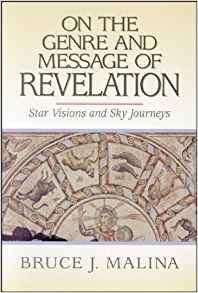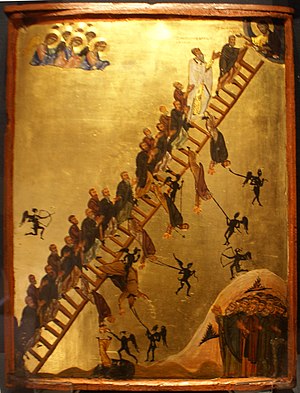 Professor Bruce J. Malina has had a special interest in understanding what was in the minds of the those who wrote, read (and heard being read) the New Testament literature, and in recent posts I have glimpsed a couple of sections of his On the Genre and Message of Revelation where he guides readers to understand this book the way its original audience may have understood it. This post looks at Malina’s explanation and history of the name and genre of the book, and why Malina believes it has been misunderstood and misread because of ignorance of the literary and religious culture that produced it.
Professor Bruce J. Malina has had a special interest in understanding what was in the minds of the those who wrote, read (and heard being read) the New Testament literature, and in recent posts I have glimpsed a couple of sections of his On the Genre and Message of Revelation where he guides readers to understand this book the way its original audience may have understood it. This post looks at Malina’s explanation and history of the name and genre of the book, and why Malina believes it has been misunderstood and misread because of ignorance of the literary and religious culture that produced it.
Professor Malina’s words are also applicable to the challenge by mythicists to professional scholars and nonprofessional students of New Testament interpretation in general. (Malina is not a mythicist, and the association is my own. Note Thomas L. Thompson’s observation that HJ scholars have always begun with the assumption that there is a historical Jesus to talk about.)
The approach to the book of Revelation adopted in this book in terms of the Hellenistic conception of the sky is a radically historical one. The goal is to understand the document in terms that would have made sense to a first-century A.D. audience. Only such a historical approach can be considered fair and adequate to the prophet’s concern about “anyone taking away from the utterances of the scroll of this prophecy” (21:19).
The task of helping a modern audience understand the book of Revelation, however, faces numerous obstacles. As is the case when working with all ancient documents, the obstacles derive not from the book of Revelation itself, but from both nonprofessional and professional students of the Bible who bring their own scenarios to their reading of the book (see Malina 1991). On the other hand, the historically minded interpreter must overcome the nonprofessional’s uncritical acceptance of spurious information both about the genre or type of the work and about the experience it purportedly describes. For many nonprofessionals the book of Revelation has become a repository of predictions concerning the end of the world. This has been a quite common perspective ever since Pharisees and Christians sought to determine the “true” age of creation to determine the beginning of the seventh millennium — the Sabbath of the cosmos (see Landes 1988). (p. 10, my emphasis and paragraphing, links are to the Google-book previews.) Continue reading “The Book of Revelation, its original meaning and modern misunderstandings”
Like this:
Like Loading...


